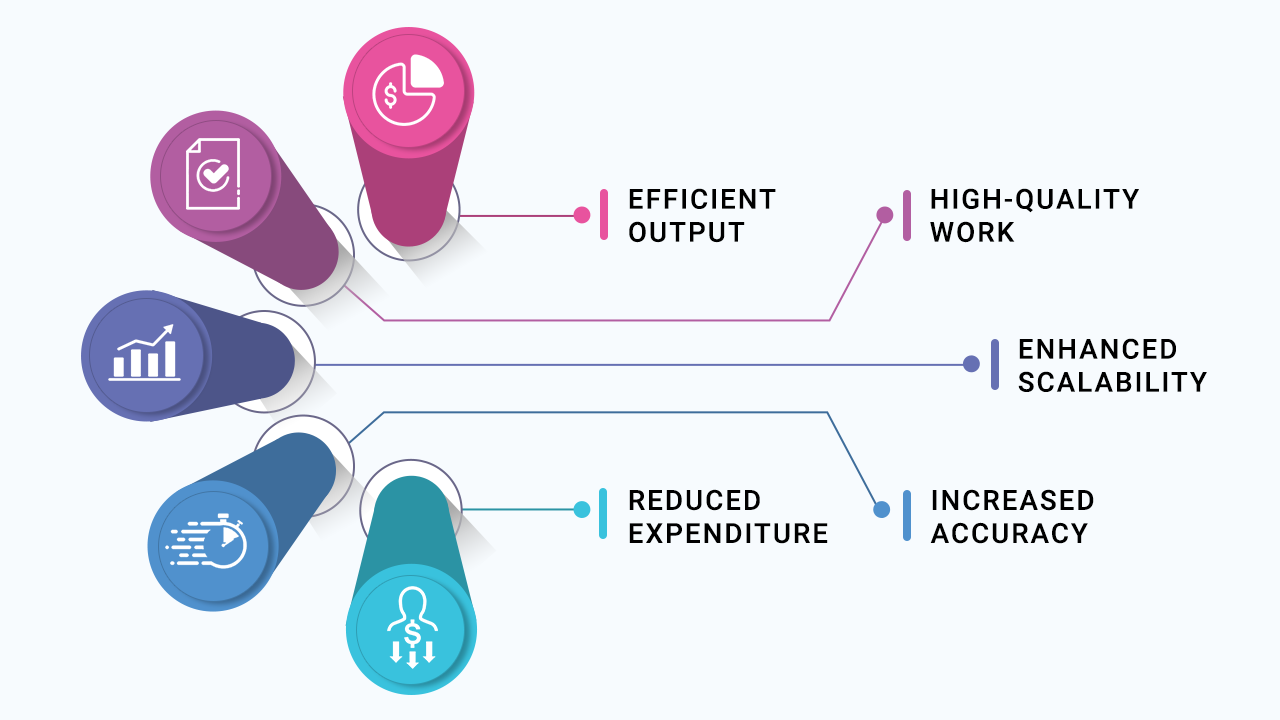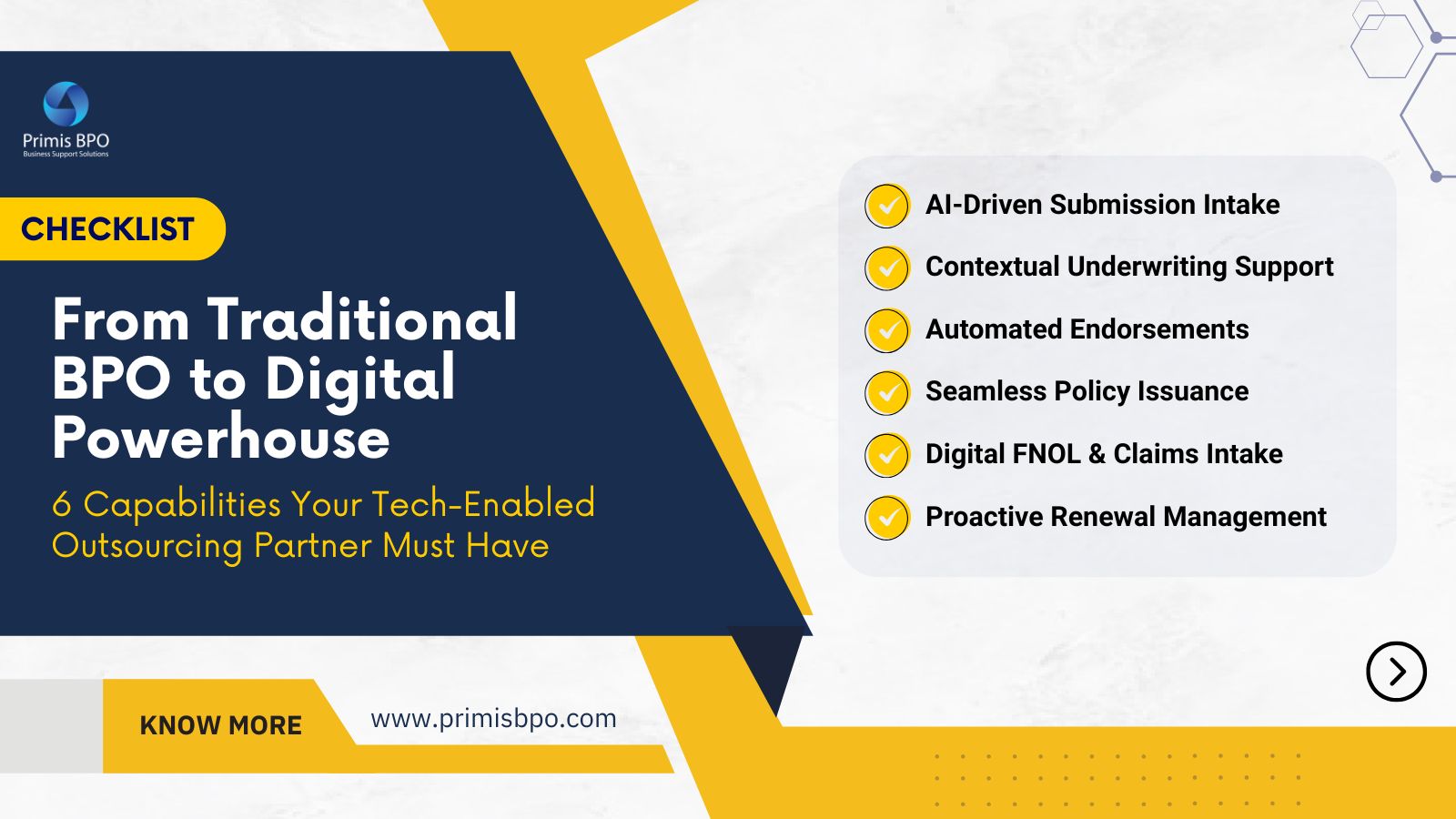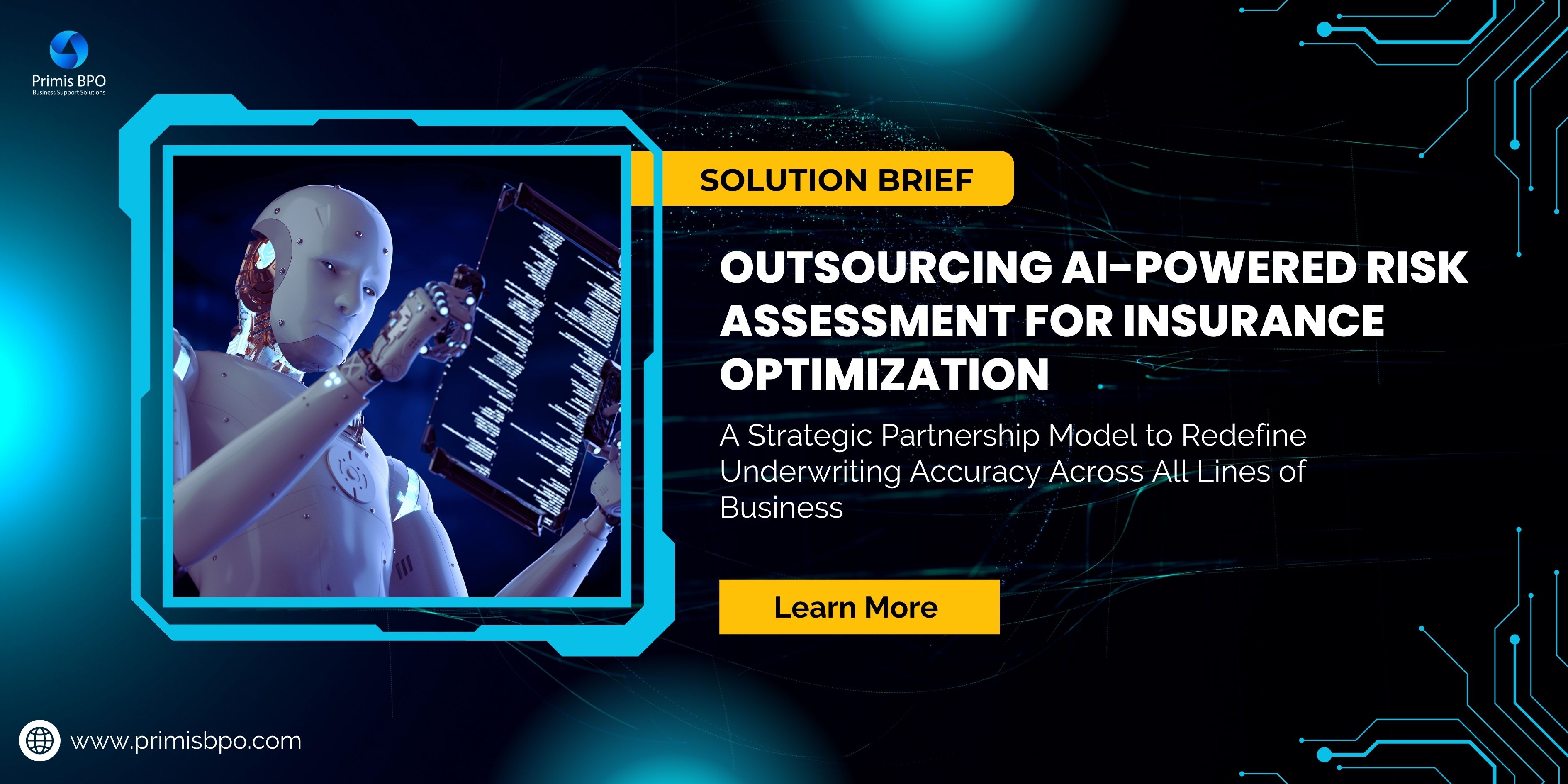
Today, Business Process Outsourcing (BPO) and Robotic Process Automation (RPA) are two of the most significant business productivity solutions available in the market. These two solutions have become an intrinsic part of our everyday life – starting from speaking with outsourced tech support, interacting with a chatbot, or receiving an automated text about your premium, you have already encountered them at some point.
But businesses often have questions surrounding RPA & BPO -
Does one function better than the other? Not at all.
Or, can we combine both? Absolutely.
Some of the major benefits come from the combination of the two processes together. Besides, they wonder if the rumors of the death of BPO are greatly exaggerated. Whether the rapid rise of RPA is the likely culprit behind a growing fear of BPO extinction?
In this blog, we will talk about how RPA is boosting the productivity of the BPO sector & how the amalgamation of both can do wonders. But first, let’s go through each category individually.
How BPOs Ensure Productivity for Businesses?
- Nowadays, businesses have access to an expert global workforce that can operate from anywhere and can complete tasks quickly and safely using managed productivity services. Due to their vast experience and resources, BPO companies provide maximum client value for each outsourced activity.
- BPO offers a wide array of solutions for organizations of all sizes. To start with, offloading mundane, repetitive tasks allows companies to reassign existing resources toward high-value projects that will deliver better ROI for the business. Moreover, allocating employees to roles they enjoy makes a more productive workforce. After all, they are not hired to spend hours filling out forms or updating spreadsheets. They are recruited for their unique skills, knowledge, and experience that drives business growth.
- Besides, BPO also helps to reduce expenditure as the wages are significantly lower in offshore places. However, their talent level remains high. Business Process Outsourcing eliminates this disparity by assisting global professionals in connecting with employers who require their services. Businesses and their customers acquire the same high-quality service they are used to but without the additional expense or hassle of recruiting and training employees.
BPO Companies Use RPA to Boost Services. Know How?
The progressively advancing RPA solutions have dramatically increased the capacity to do work, and that too, with a high level of accuracy. As a result, a virtual workforce has emerged. RPA engines are equipped with specific process knowledge that helps it to automate rules-based tasks. Along with major boosts in accuracy, productivity, and efficiency, businesses that implement RPA also witness massive gains in terms of cost and time savings. For instance, a virtual service-desk robot can answer up to 62,000 calls in a month and resolve 2 out of 3 queries without human intervention. It enhances a company's existing capabilities while providing the extra bandwidth required for growth.
Henceforth, many businesses are turning to RPA, which promises unprecedented levels of quality and efficiency to help achieve:

Improved Output Efficiency
A significant area in which robotic process automation excels is productivity and speed. Because data is processed in real time against the rules, the resulting output is instantaneous, which means there is no room for delay.
Moreover, bots can work round-the-clock, which improves the business output. Unlike humans, they don’t need sleep or breaks. Instead of employees wasting hours on trivial tasks, they can assign it to bots who handle the tedious tasks efficiently and allow humans to focus on other high-value assignments.
High-Quality Work
No matter how well-trained professionals are, it’s impossible to achieve every task error-free and in the same manner within a stipulated time-frame. RPA is an excellent option for businesses looking to generate better results, reduce human errors and standardize workflows. Minor quality differences create inconsistency, and these inconsistencies are often the difference between delighting one customer and infuriating the next.
Scalability
Once processes work appropriately, more bots can be easily added as per requirement. Businesses can upscale or downscale to meet capacity needs without needing additional personnel or major infrastructure revisions.
High Accuracy
By leveraging RPA solutions at work, businesses can avail round the clock and highly accurate service for monotonous jobs. These automated processes lead to the elimination of human errors, thereby yielding a better and more modified version of business results.
Reduced Expenditure
RPA helps businesses in decreasing operational expenses. As more and more mundane functions are automated, the requirement for manual workers is reduced, saving money for value-adding business tasks.
Amalgamation of BPO & RPA Maximizes Outcomes
So, now let’s answer the question – Is RPA a threat to the BPO industry?
While RPA will definitely impact the workflow of BPOs, it can be adopted as an opportunity instead of a threat.
Firstly, it's the technology that can offer some incredible benefits like accuracy, cost-savings, competitive advantage, etc. Moreover, automation helps to improve how outsourcing companies operate themselves, optimizing mundane, repetitive tasks and freeing employees to focus on more higher-value, complex activities.
In addition, many companies and business leaders still do not have a strong grasp of exactly how RPA, on the whole, can enhance their operations and services. They are already in search of third-party providers to deliver RPA in order to support and transform their digital solutions. This is an advantageous chance for the BPO sector to convert a disruption into an opportunity. BPO companies that can include RPA expertise in their outsourcing capabilities will continue as essential partners to businesses looking to thrive in the digital era.
To sum up, RPA provides precision, speed, and accuracy to reduce costs and drive growth. At the same time, BPO decreases staff effort and expenses for complex tasks that cannot be automated or require human intervention to be effective. Henceforth, the optimal way to do business is to combine both.
In a Nutshell
For companies looking to enhance output without major process or infrastructure alterations, RPA is a profitable investment. However, for activities that require human interaction or intelligence, BPO is the way to go. No matter which option you choose, an amalgamation of both will help your business soar high.
Contact us, and our dedicated professionals will be happy to assist you and guide you through the entire process.
Recent Blogs

Optimizing Auto Insurance Underwriting Through Outsourced AI-Driven Risk Intelligence

[Checklist] From Traditional BPO to Digital Powerhouse: 6 Capabilities Your Tech-Enabled Outsourcing Partner Must Have

Outsourcing AI-Enabled Property Risk Analysis

Outsourcing AI-Powered Risk Assessment for Insurance Optimization

Augmented Underwriting: When Human Expertise Meets Digital Intelligence